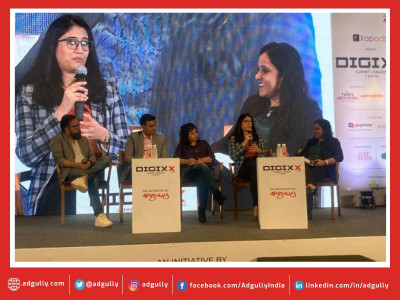Delhi High Court issues a summons for 'College Romance'
On Monday, March 6, the Delhi High Court ordered the appropriate authorities to file a first information report (FIR) against the creators of the web series “College Romance,” which is currently available to stream on the OTT platform TVF.
In the lawsuit against the online series creators, a single-judge panel presided over by Justice Swarana Kanta Sharma affirmed the prior ruling. The Delhi police were instructed to file a police report (FIR) against director Simarpreet Singh and performer Apoorva Arora by an additional chief metropolitan magistrate (ACMM).
A common man would "come to the conclusion that the language employed in the online series is vile and obscene which can damage and corrupt susceptible minds,” the court claimed in his ruling.
Hence, on the basis of this conclusion, it can be concluded that the web series’ content will unquestionably be considered unlawful under Section 67 of the Information Technology Act (publishing or conveying any material that is lascivious in electronic form), according to Justice Sharma. She further clarified that the order to file a FIR does not grant power to detain either the petitioner or the accused.
In accordance with certain sections of the Indian Criminal Code (IPC) and Sections 67 and 67A (penalty for publishing or transmitting content containing sexually explicit conduct) of the IT Act, the ACMM directed the Delhi police to file a FIR against the creators of the web series in September 2019. The ACMM’s order was changed by an extra sessions judge in November 2020, who stated that the FIR should only be filed in accordance with Section 67A of the IT Act. The most recent decision, made on Monday, March 6, affirmed the ACMM’s directive from September 2019.
The Information Technology (Intermediary Guidelines and Digital Media Ethics Code) Rules, 2021—commonly known as the IT Rules—were also brought to the attention of the Union Ministry of Electronics and Information Technology, urging it to take stricter action against the creators of web series, platform (TVF), and YouTube.
The complainant in the case claimed that the show’s Season 1 Episode 5 contained vulgar and filthy language and that it depicted women and girls in a “indecent” manner.
The male protagonist "uses words describing male and female genitalia and sexual conduct, thereby by words conjuring pictures of a sexually explicit deed, bringing it under the purview of generating prurient feelings by acting,” the court further concluded.
The court ruled that “the bug of obscene… and foul language of Bagga cannot be permitted to poison the language of people,” along with the show’s male protagonist who goes by the name Bagga.
The petitioners' claims that the show’s language or behaviour did not inspire lustful thoughts were rejected by the judge. The court stated that it is necessary to treat “seriously” the use of “vulgar language” and “bad terms in the public domain and in social media platforms” accessible to young children.
Media sites “cannot be allowed to legitimise objectionable language, including profanity and vulgar terms, in the garb of change of language with the passage of time”, the court said. Nonetheless, the judge stated that the language employed in the series “does not satisfy the test of public decency” despite acknowledging that courts cannot morally regulate. According to the decision, the majority of Indians prefer to speak and hear civil language.

















Share
Facebook
YouTube
Tweet
Twitter
LinkedIn